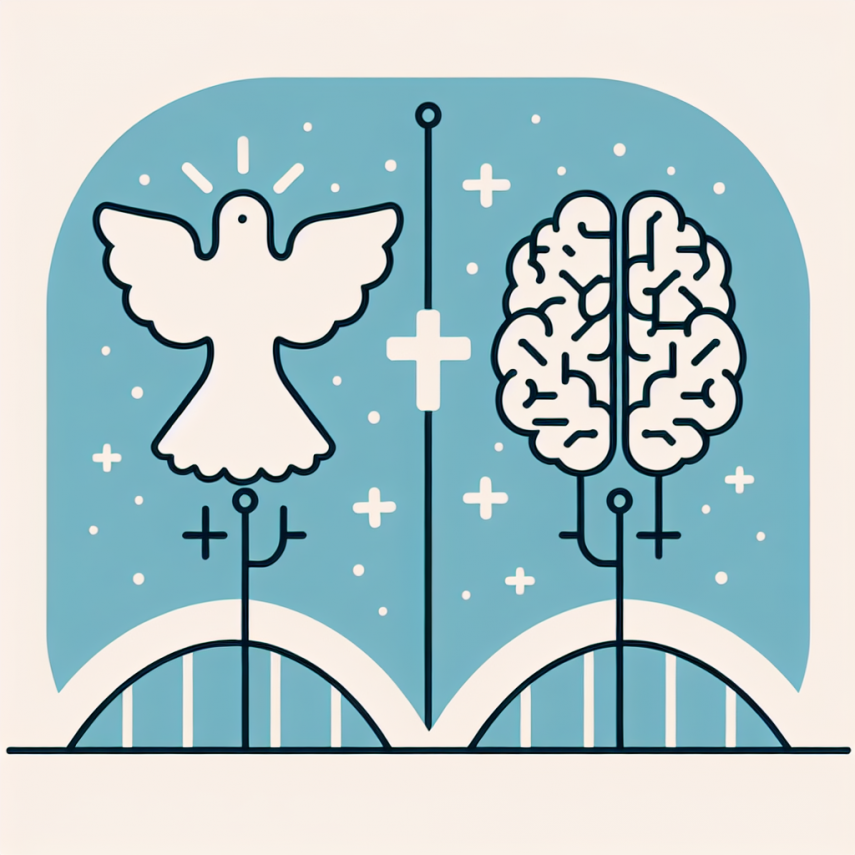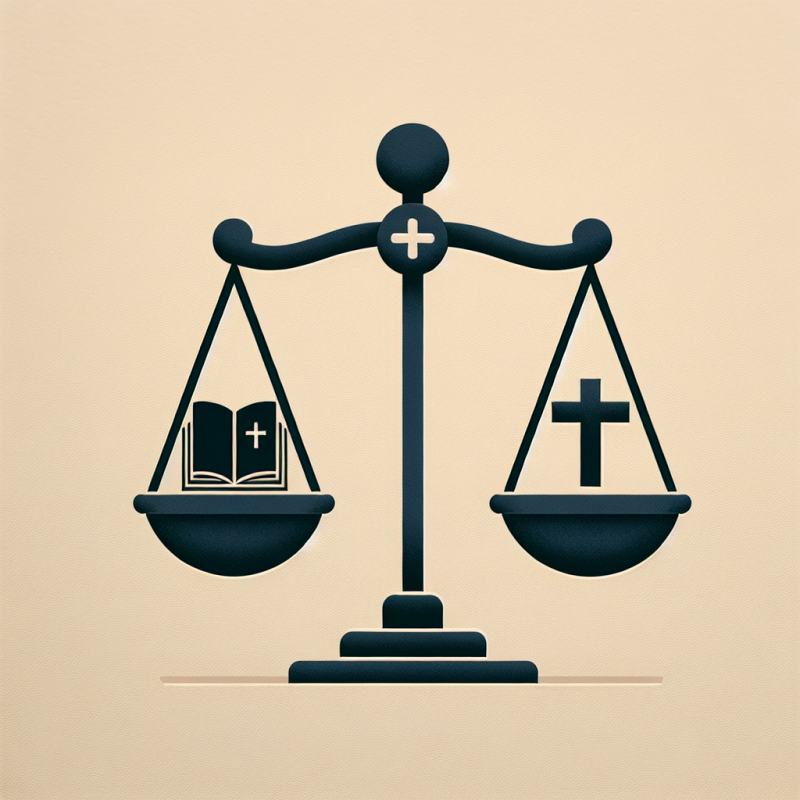**Title: The Harmony Between Faith and Logic: Bridging the Gap**
Throughout history, faith and reason have often been perceived as two disparate worlds, locked in constant tension. Yet, a closer inspection reveals a profound harmony between the two. Rather than opposing forces, faith and logic can complement each other, providing a fuller understanding of the world and our place within it. This interplay invites us to engage critically and spiritually with life’s ultimate questions, embracing both the truths of scripture and the discoveries of modern thought.
### Faith as a Foundation for Inquiry
At its core, faith is not antithetical to reason; rather, it provides the foundation for rational exploration. Faith involves trust in the unseen and a belief in an order to the universe, which inspires curiosity. Even the scientific pursuit of knowledge operates on basic assumptions—such as the uniformity of nature—that are difficult to prove without some underlying faith. Similarly, biblical faith encourages exploration, as seen in scriptures like Proverbs 25:2, which proclaims, “It is the glory of God to conceal a matter; to search out a matter is the glory of kings.” This verse highlights the divine delight in human discovery and inquiry.
Historically, many great scientists—Newton, Pascal, Mendel, and others—saw their work not as separate from faith but as a way to glorify God through understanding His creation. Their belief in a rational Creator provided the assurance that the world could be studied systematically and that its laws would hold consistent.
### Logic Illuminating Faith
If faith inspires inquiry, then logic helps order and clarify it. Reason can refine our understanding of scripture and doctrine, guarding against misinterpretation or blind acceptance. Just as Paul reasoned with the people of Athens on Mars Hill in Acts 17, believers are called to “always be prepared to give an answer” (1 Peter 3:15) for the hope that they profess—an answer that is thoughtful, coherent, and compelling.
Consider the theological concept of God’s existence. Philosophers and theologians, including Thomas Aquinas, have long employed logical frameworks such as the cosmological argument or the argument from design to explore and explain the existence of a divine Creator. These efforts do not supplant faith but enrich it, offering believers intellectual tools to articulate their convictions.
### Integration in the Modern Era
In the contemporary context, the intersection of faith and logic faces both unique challenges and opportunities. Science and technology continue to push boundaries, often unsettling long-held beliefs. Topics like artificial intelligence, neuroscience, and cosmology prompt difficult questions about humanity’s purpose and the nature of the soul. Yet a robust faith, paired with thoughtful reasoning, can navigate these discussions with humility and confidence.
For example, recent advances in neuroscience have explored the intricacies of human consciousness. While some argue this reduces the mind to mere neural processes, others—drawing both from scriptural teachings and logical inquiry—argue that consciousness hints at a transcendent reality, an immaterial soul. Such debates underscore the need for a faithful engagement with cutting-edge research, approaching it as an opportunity to deepen our understanding of divine truth rather than a threat to it.
[1,Neuroscience and consciousness spiritual dimension]
Additionally, the practical implications of this bridge between faith and logic cannot be overstated. In an era marked by division and skepticism, the ability to thoughtfully engage with differing viewpoints—rooted in both reason and grace—offers a powerful witness. Faith invites empathy and humility, while logic sharpens critical thinking and discernment, equipping believers to navigate the complexities of modern society with integrity.
### Embracing the Mystery
While faith and reason are complementary, it is essential to acknowledge that human understanding will always remain limited. As finite beings created in the image of an infinite God, we are both equipped to seek the truth and humbled by the knowledge that some questions may never have definitive answers. This tension need not discourage us. Instead, it invites awe and worship.
Scripture often alludes to this interplay between the knowable and the unknowable. Deuteronomy 29:29 reminds us, “The secret things belong to the Lord our God, but the things revealed belong to us and to our children forever.” Faith celebrates both the revealed and the mysterious, encouraging a posture of trust even when logic reaches its limits.
[2,Interplay between reason and faith in theology scripture verse]
### Conclusion
The journey of integrating faith and logic is not without its challenges, but it is undeniably worth pursuing. Together, they form a balanced approach to navigating life’s greatest questions, pointing to a Creator who is both rational and loving. A faith grounded in reason is stronger, while reason guided by faith is richer. As we embrace this union, we not only deepen our understanding of God’s creation but also draw nearer to His heart. In doing so, we manifest the harmony of faith and logic and reveal a glimpse of His divine intention for humanity.
[3,Modern depiction of faith and science as intertwined concepts]




Thank you for reading! I wrote this article to share my thoughts and insights. I’d love to hear your feedback and discuss further in the comments!
This was a helpful read. Looking forward to more content like this!